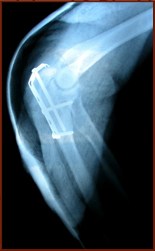What do I need to Prove in a Personal Injury Case?
Personal injury or tort cases usually require proving four basic elements to a jury. To be successful, you, the Plaintiff, must first usually show that the person or entity you are suing owed some sort of duty to you. For example, you can not sue a complete stranger you have never met or seen for failing to rescue you if you fall through an icy lake; that stranger owed no duty to you. Other entities are sometimes said to have immunity from such a suit. Many people and entities who have relationships with you however automatically owe you certain duties. Businesses you shop at, employers, hospitals, doctors, landlords, banks, hotels, plumbers, electricians, fellow drivers on the roads, and many other persons and entities, all owe you certain duties to you because of your relationship with them. Usually, the Courts will say that these persons and entities have a duty to use “reasonable care” in how they relate to others in a relationship with them.
 Secondly, a Plaintiff bringing a personal injury or tort action must be able to prove that the Defendant being sued breached that duty or violated the standard of care which we expect someone under similar circumstances to live up to. In most cases, the Plaintiff must show that the Defendant was negligent or failed to use reasonable care in performing its specific duties to the Plaintiff. To do that, the Plaintiff must demonstrate either a legal and/or customary standard that we expect a person in Defendant’s situation to meet, and then demonstrate how the Defendant negligently failed to meet that standard. (In certain rarer situations involving “strict liability”, it is enough to show that a Defendant’s actions caused harm and in those situations, a Defendant is not permitted to defend a lawsuit and avoid responsibility for the harm it caused by arguing that it used reasonable care.)
Secondly, a Plaintiff bringing a personal injury or tort action must be able to prove that the Defendant being sued breached that duty or violated the standard of care which we expect someone under similar circumstances to live up to. In most cases, the Plaintiff must show that the Defendant was negligent or failed to use reasonable care in performing its specific duties to the Plaintiff. To do that, the Plaintiff must demonstrate either a legal and/or customary standard that we expect a person in Defendant’s situation to meet, and then demonstrate how the Defendant negligently failed to meet that standard. (In certain rarer situations involving “strict liability”, it is enough to show that a Defendant’s actions caused harm and in those situations, a Defendant is not permitted to defend a lawsuit and avoid responsibility for the harm it caused by arguing that it used reasonable care.)
Third, a Plaintiff must demonstrate that the Defendant’s breach of the duty it owed Plaintiff was a proximate cause of harm to the Plaintiff. The Defendant being sued may have done some terrible things or performed its duties in miserable fashion, but that is not enough. Plaintiff must demonstrate that the Defendant’s conduct was a proximate cause of the damage done to Plaintiff.
Fourth, a Plaintiff must demonstrate the damages or losses he has experienced because of the Defendant’s conduct. If the Defendant’s breach of the duties owed to Plaintiff did not result in significant injury to the Plaintiff, a court or jury may find that the Plaintiff is not entitled to anything. (Occasionally, for some injuries, damages can be presumed and are automatically compensated.) In the law of tort, an injured person can usually seek to be compensated for tangible losses like lost wages, future lost wages and medical bills but a jury can also usually award compensation or damages for the pain, suffering, heartache, stress, anxiety, shock and frustration and other intangibles that an injured person has been forced to experience.
Every case, and type of case, is different however. Contact our office for a free consultation to determine if you have a case that can be pursued.
